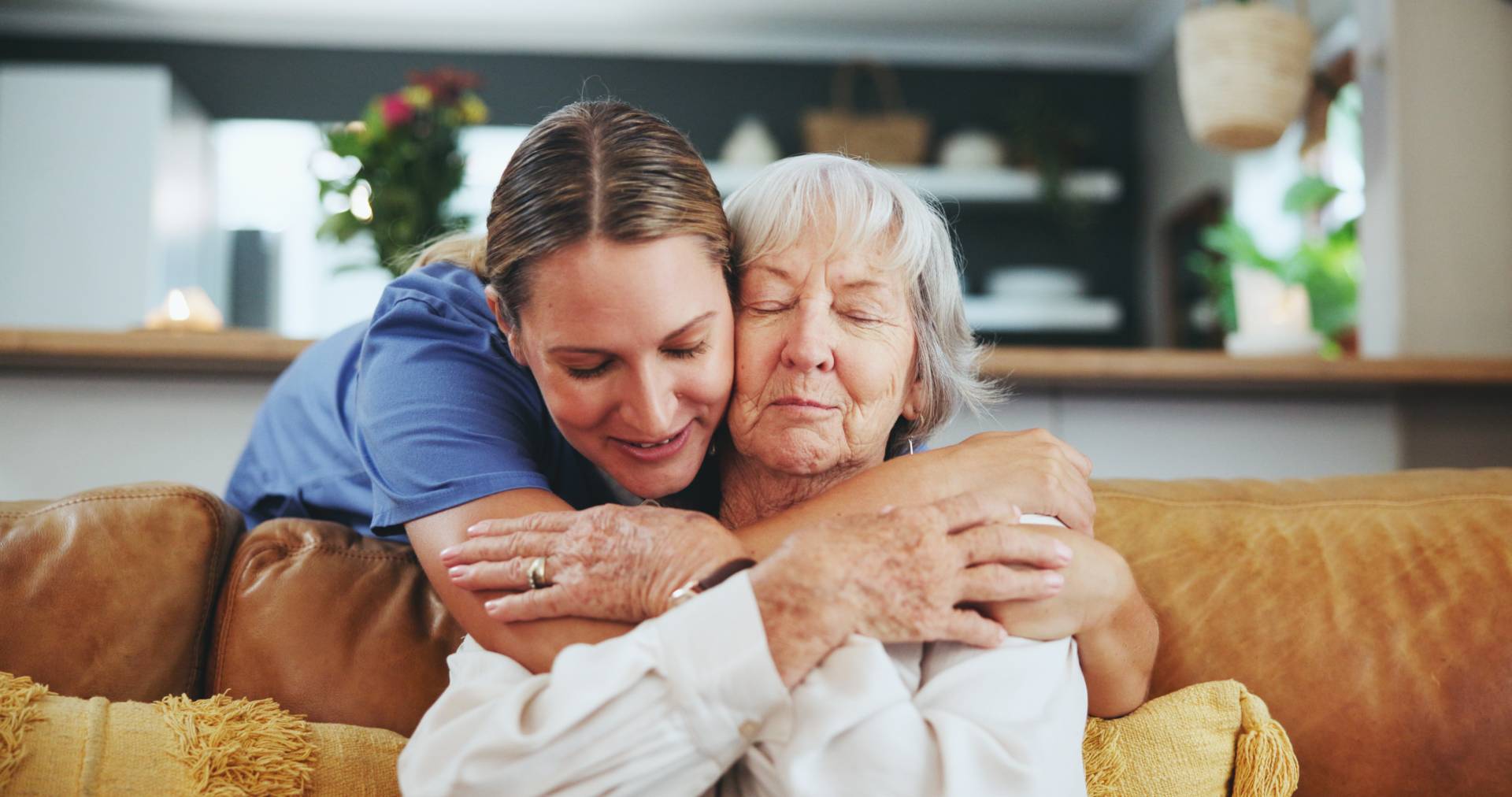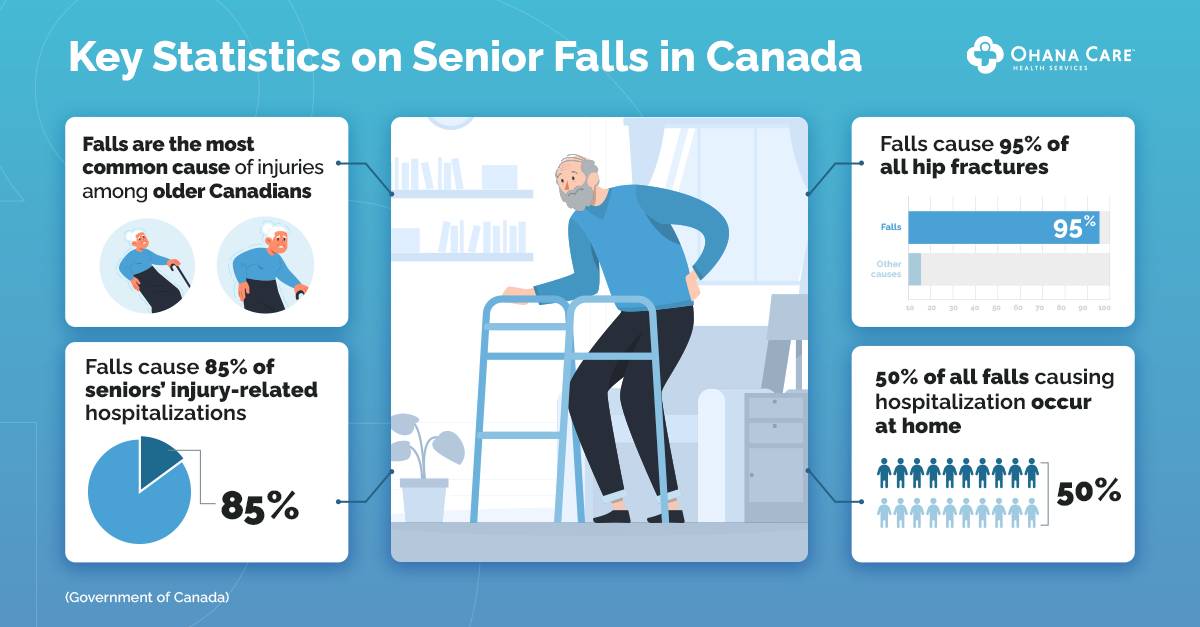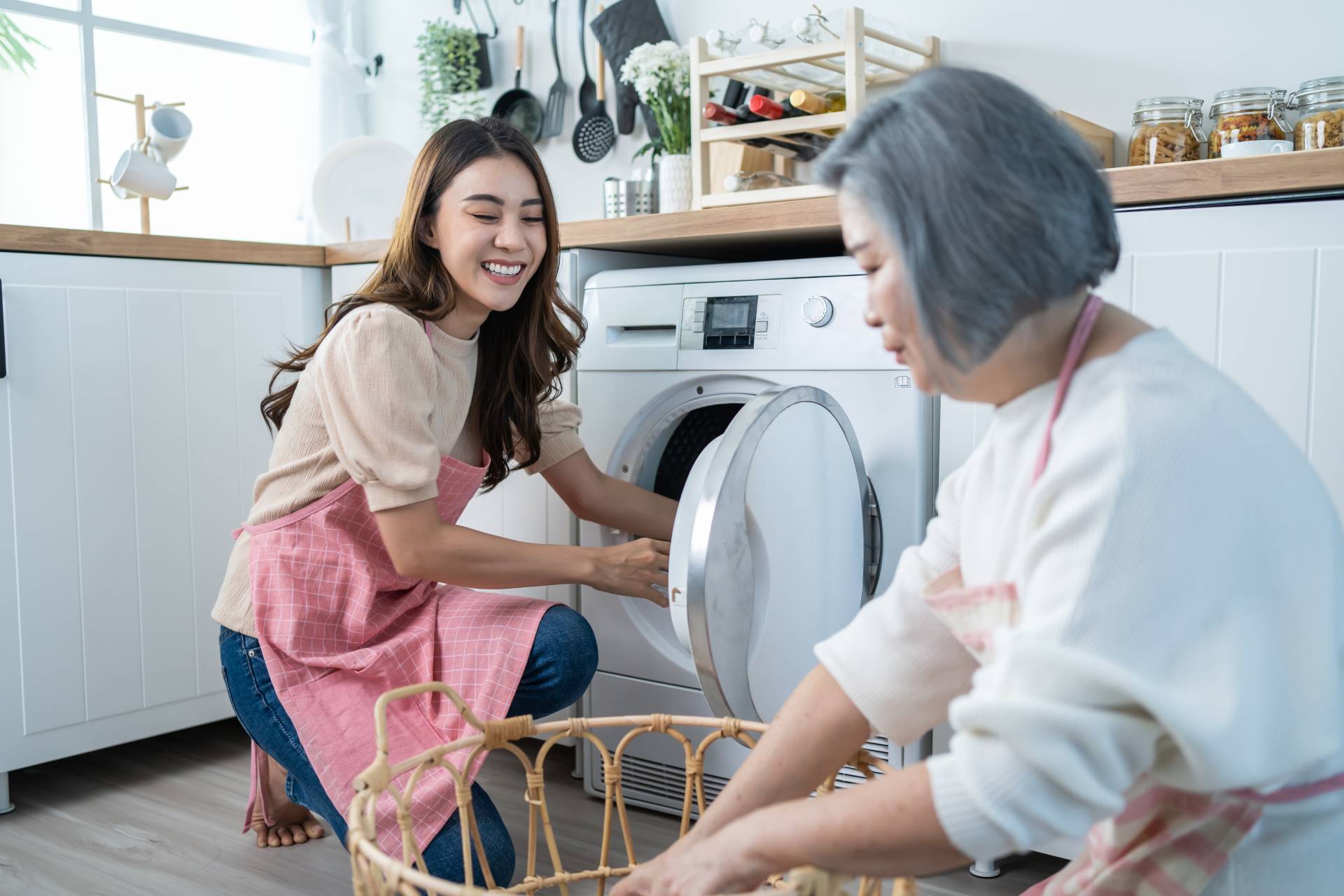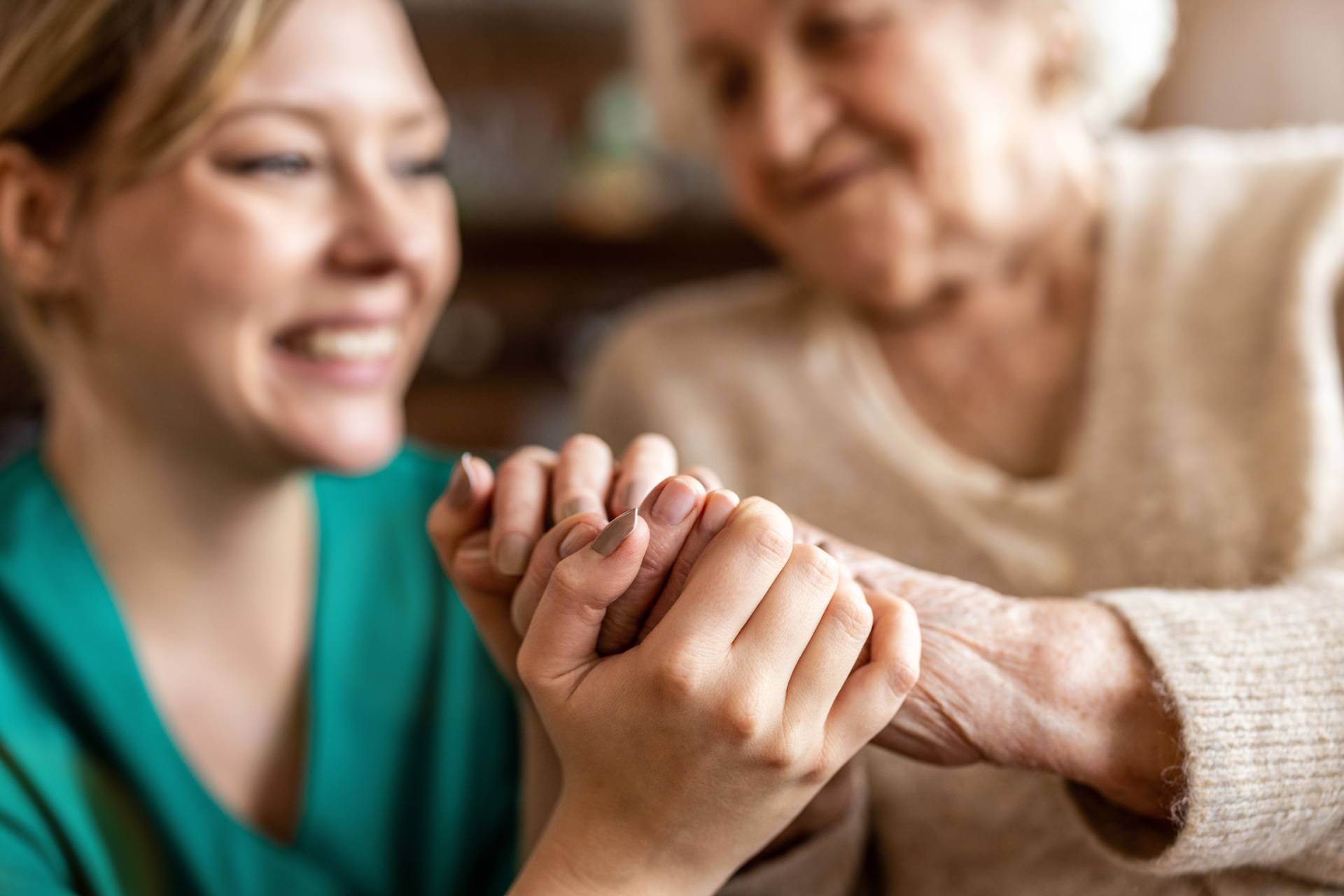Have you noticed your aging parent or loved one struggling to prepare meals or maintain their home as they once did? Are they forgetting to take their medication on time?
Are you worried they may no longer be as safe or comfortable living alone, especially with the risk of falls or accidents?
Do you find yourself overwhelmed trying to balance caregiving responsibilities with your own work and family life? Wish you could spend more time creating cherished memories with your loved one rather than managing their needs?
If you answered “yes” to any of these questions, it may be time to look into in-home care services.
Home care is a high-quality care option for seniors. It allows them to receive support with daily tasks, personal care, and basic medical needs in the comfort of their own homes.
In this blog post, we’ll explore 18 key benefits of in-home care and why it might be the right choice for your loved one.
1. Comfort and Familiarity
As mentioned above, in-home care allows seniors to remain in their own homes rather than go to a residential nursing facility or retirement home. Having access to their own bed and own bathroom provides a level of privacy and dignity that is often not possible in shared living environments.
Additionally, being in a familiar environment can reduce stress, promote emotional well-being, and support cognitive function, which is especially important for seniors who may face early forms of dementia.
2. Personalized Home Care Plan
Unlike a residential care facility or retirement home, which are often standardized to accommodate many residents at once, at-home care offers one-on-one attention.
This means seniors receive support on their schedule, whether eating meals at their preferred times, engaging in hobbies they enjoy, or following specific routines that bring them comfort.
3. Maintain Independence
In-home services help seniors maintain independence in ways that nursing facilities often cannot.
For example, older adults can keep up with household tasks like sorting mail or tidying up personal items with just a little help when needed. They also get to decide how to organize and manage their space, giving them a sense of control and ownership over their home.
4. Reduced Risk of Infection
With home care, seniors can avoid the higher risk of catching contagious illnesses that often come with living in a nursing facility.
If one person gets sick in shared spaces, the illness can spread quickly, sometimes leading to lockdowns, during which residents are stuck in their rooms.
On the other hand, in their own home, aging adults can stay healthier and enjoy their usual routines without worrying about being exposed to outbreaks or confined unnecessarily.
5. Emotional Support

Loneliness is a common struggle for many seniors, especially those who live alone or have limited social connections.
With home care, seniors can receive companionship from a trusted caregiver with whom they can form a genuine relationship. A caregiver can become someone they can confide in, share stories with, or simply enjoy quality time with.
This emotional connection can brighten a senior’s day, significantly boost their overall well-being, and provide peace of mind to family and friends who worry about their loved one’s mental health.
6. Cost-Effective Solution
Home care can be a more affordable option than living in a care facility as you only pay for the specific services you need, avoiding the all-inclusive costs typically associated with residential nursing facilities.
PS: If you are located in Alberta, you can explore subsidized care options through the Client Directed Home Care program offered by Alberta Blue Cross. This program gives seniors more control over scheduling and directing their care while minimizing financial burdens and administrative responsibilities.
7. Medication Reminders & Management
Missing a medication dose or accidentally taking too much can have serious health consequences, especially if your loved one is managing multiple prescriptions.
That’s where caregivers can step in and provide helpful healthcare reminders that ensure everything is taken on time and in the right doses.
Additionally, a care manager can provide light medical monitoring where they watch for side effects or changes in health that may need attention. This added layer of support can provide you and your loved one peace of mind, ensuring that medications are handled safely and consistently.
8. Fall Prevention Assistance

With falls being one of the leading causes of injuries for seniors, it’s important to ensure their home is free of hazards, such as loose rugs, poor lighting, or cluttered walkways. Caregivers can tour the home and ensure there are no major hazards that can cause a fall.
If a hazard can’t be easily fixed, caregivers can step in to provide hands-on support, like helping a senior navigate the stairs or lending a steady hand with tasks that need extra balance.
By making the home safer and offering this kind of physical assistance, caregivers help seniors move around with confidence while keeping the risk of falls to a minimum.
9. Transportation for Errands and Appointments
Getting out and about can be a challenge for seniors, especially if public transportation is unreliable or family members aren’t always available to help.
Caregivers can provide safe and convenient transportation for essential errands like grocery shopping, pharmacy visits, or attending doctor’s appointments.
Additionally, caregivers can accompany and provide rides to social activities such as:
- Religious services
- Community events like local fairs, senior center activities, or cultural festivals
- Group classes, such as art, fitness, or language lessons
- Book clubs, crafting groups, or other hobby-based gatherings
- Family get-togethers, birthdays, or celebrations outside the home
10. Mental Stimulation
Engaging in meaningful activities that provide mental stimulation keeps the mind sharp, enhances mood and combats feelings of isolation.
Here are a few stimulating activities caregivers can do with your loved one to encourage mental stimulation:
- Jigsaw puzzles
- Paint pottery
- Science experiments, like making a volcano
- Create a photo album
- Build lego
- Make baked goods
11. Flexible Scheduling & Care Plans
With in-home care, seniors can decide whether they would like a caregiver to provide ongoing assistance or temporary support.
For example, if your elderly loved one has just returned home from the hospital and needs help overnight with washroom breaks or mobility, a caregiver can be there to provide around-the-clock care. Or if they simply want a companion, a caregiver can spend a few hours with them on a Monday morning chatting, playing games, or going on a relaxing walk.
Flexible care plans mean your loved one gets the right level of support when they need it.
12. Maintain Personal Dignity
Needing help with personal tasks like bathing or dressing can be tough for many seniors. It’s often an uncomfortable and even embarrassing reminder of the independence they’ve lost, which can take a real toll on their self-esteem.
In-home care focuses on providing discreet, compassionate assistance, ensuring seniors feel respected and comfortable during these moments while still getting the support they require.
Ohana Care takes this one step further when out in the community. Our companions wear regular, everyday clothing, offering an extra layer of discretion.
This thoughtful approach allows seniors to feel more confident going out with the caregiver as the caregiver can blend in naturally, whether they’re attending appointments, running errands, or enjoying social activities.
13. Household Management

According to a survey by Libman, 92% of participants reported feeling more relaxed in a clean home. Additionally, 90% emphasized the importance of a clean home for their mental health, while 89% highlighted its significance for physical health.
Maintaining a clean and organized home is essential for seniors’ health and safety, but some household tasks can become difficult to manage alone.
Caregivers can assist seniors with light household chores, such as laundry, washing dishes, or tidying up living spaces.
Rather than completing these tasks for seniors, caregivers focus on empowering them to participate as much as possible, offering guidance and help where needed. For example, a caregiver might help sort laundry, hand items to a senior for folding, or steady them while they clean countertops.
14. Reduced Feelings of Isolation and Loneliness
Loneliness is a common challenge for seniors, with almost 1 in 5 Canadians aged 65 and older reporting feelings of loneliness, according to the Government of Canada.
In-home care helps combat these feelings by providing consistent companionship and meaningful interactions.
Caregivers spend quality time with seniors, engaging in conversation, sharing hobbies, or simply being a friendly presence. This regular social connection can significantly improve their emotional well-being, helping seniors feel more connected and less isolated.
15. Peace of Mind for Loved Ones
Knowing your loved one is struggling with daily tasks can be incredibly difficult.
You’re probably thinking about them constantly—are they eating properly? Taking their medications? Staying safe at home? It’s a lot to carry, especially when you can’t always be there yourself.
That’s where in-home care makes a difference.
In addition to supporting your loved one with daily tasks, caregivers can update you on their health, mood, and daily activities. This communication will provide you with peace of mind, knowing what is going on in your loved one’s daily life.
16. Encouragement for Physical Activity
Aging gracefully isn’t just about appearances. It’s about helping seniors feel their best every day!
Staying active is one of the most effective ways for seniors to maintain a healthy lifestyle. Caregivers can encourage seniors to do safe and fun exercises that focus on improving balance, mobility, and strength so your loved one can keep their body moving and increase their overall well-being as they age.
17. Access to Local Programs & Resources
Caregivers often have the inside scoop on the best local programs and resources for seniors.
They can recommend the top meal delivery services, the go-to transportation options, or the most engaging community events.
Whether it’s a senior fitness class at the community center or a hobby workshop at the local library, caregivers help connect seniors with activities that suit their interests and needs. This kind of guidance makes it easier for seniors to stay active, social, and supported in their own community.
18. Improved Hygiene Practices
Maintaining good hygiene is essential for seniors’ health and comfort, but it can become challenging as they age.
Caregivers provide gentle, supportive assistance to help seniors stay clean and feel their best. Here are some ways they can help improve hygiene practices:
- Assisting with bathing or showering
- Helping with hair care, including washing, drying, or styling
- Supporting dental hygiene by reminding seniors to brush and floss or assisting with dentures
- Assisting with shaving or grooming to maintain a neat appearance
- Ensuring proper handwashing after meals or bathroom use to prevent illness
- Helping with skincare routines, such as moisturizing dry skin or applying sunscreen when outdoors
- Encouraging regular changes of clothes to maintain freshness and comfort
With this kind of compassionate support, caregivers help seniors maintain their dignity while meeting their hygiene needs.
Choose Ohana Care for In-Home Care Support

Finding the right care for your loved one can feel overwhelming, but in-home care offers many benefits. It provides a care solution that prioritizes seniors’ independence, comfort, and well-being.
At Ohana Care, we provide a variety of tailored services for seniors, including:
- Companion care
- Dementia and Alzheimer’s care
- Respite care
- Palliative and end-of-life care
- 24-hour care
- Live-in care
Our compassionate team is here to help your loved one stay safe, comfortable, and cared for in the place they call home.
Contact us today to learn more about how we can support your loved one with their daily needs, so your primary focus can be on building a deeper relationship and creating meaningful memories together.





